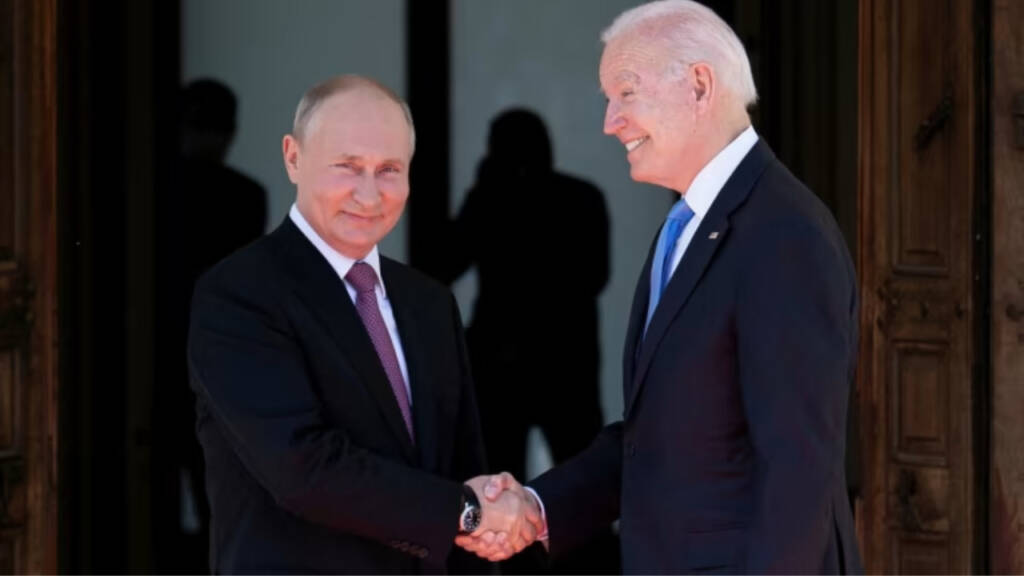The United States heavily relies on Russia for its nuclear supplies. According to a senior official in President Joe Biden’s administration, this dependence poses a “critical” threat to national security. Approximately 20% of the nuclear fuel used by the US is sourced from contracts with Russian suppliers, a situation deemed “gravely concerning” by Kathryn Huff, the assistant secretary for nuclear energy. In a recent interview with the Financial Times, Huff highlighted the significance of this reliance.
Notably, the US has spent over $1 billion on purchasing Russian uranium, further emphasizing the extent of this dependency.
The United States has witnessed a shift in its primary source of nuclear fuel, with a sanctioned country resurging as the top supplier. According to RIA Novosti, the US imported over $1 billion worth of Russian uranium between January and November 2023, as reported by the US statistics service. In November alone, Russian nuclear fuel exports to the US reached $96 million, marking the nation as the leading uranium provider, a position not held since May when supplies totaled $177 million.
Join us on Telegram: https://t.me/tfiglobal
So, the US House of Representatives passes a ban on Russian uranium, but the country still manages to import over $1 billion of it. Is this what they mean by a “ban with benefits”?
While the US traditionally receives nuclear fuel from various nations, including the UK and Japan, November’s figures indicate a substantial Russian contribution. The UK and Japan exported approximately $48.6 million and $44 million worth of uranium to the US, respectively. Belgium’s uranium supplies amounted to $2.4 million during the same period. Overall, US uranium imports totaled nearly $191 million in November.
In December, the US House of Representatives passed a ban on the importation of Russian uranium, aligning with broader sanctions against Moscow in response to the Ukraine conflict.
If the US is so concerned about Russian uranium, why did it take until December to pass the ban? Think about it.
Read More: In November 2023 alone, US bought 10,000 barrels of Sanctioned Russian Crude
And this is not all. Recent data exposes the United States’ apparent inconsistency. In November 2023, the US purchased nearly 10,000 barrels of Russian oil, contradicting its own ban on energy imports from the country, at a cost of $749,500.
This seemingly audacious move reveals a gap between the US’s public stance and its actions. While professing to support sanctions on Moscow, the US has left a back door ajar. The ostensible restrictions on Russian crude, imposed in 2022 amid the Ukraine conflict, supposedly include a ban. However, special licenses from the Treasury’s Office of Foreign Assets Control (OFAC) provide a loophole.
In essence, the US engages in diplomatic maneuvering, projecting a moral high ground while conducting a symbolic oil deal worth $749,500. This paints a picture of Washington talking tough while discreetly contributing to Russia’s finances.
Read More: How Private Companies in the US helped Russia beat Ukraine
This recurrence is not an isolated incident but rather part of a pattern revealed by Global Witness reports utilizing ship-tracking methods. The United States has been discreetly importing Russian oil through intermediary countries, exploiting what can be colloquially termed the “refining loophole.” This strategy allows the US to circumvent its own ban by having the imported oil undergo the refining process outside Russia.
Given the recurring pattern revealed by Global Witness reports utilizing ship-tracking methods, does the discreet importation of Russian oil by the United States highlight a systemic issue in its commitment to diplomatic transparency and adherence to sanctions?
This “Billion-Dollar Connection” between the US and Russia paints a rather ironic picture of international relations. Despite the grand gestures of sanctions and stern rhetoric, the practicalities reveal a more nuanced reality. This Billion-Dollar Connection serves as a reminder that actions speak louder than words.
Watch More:
